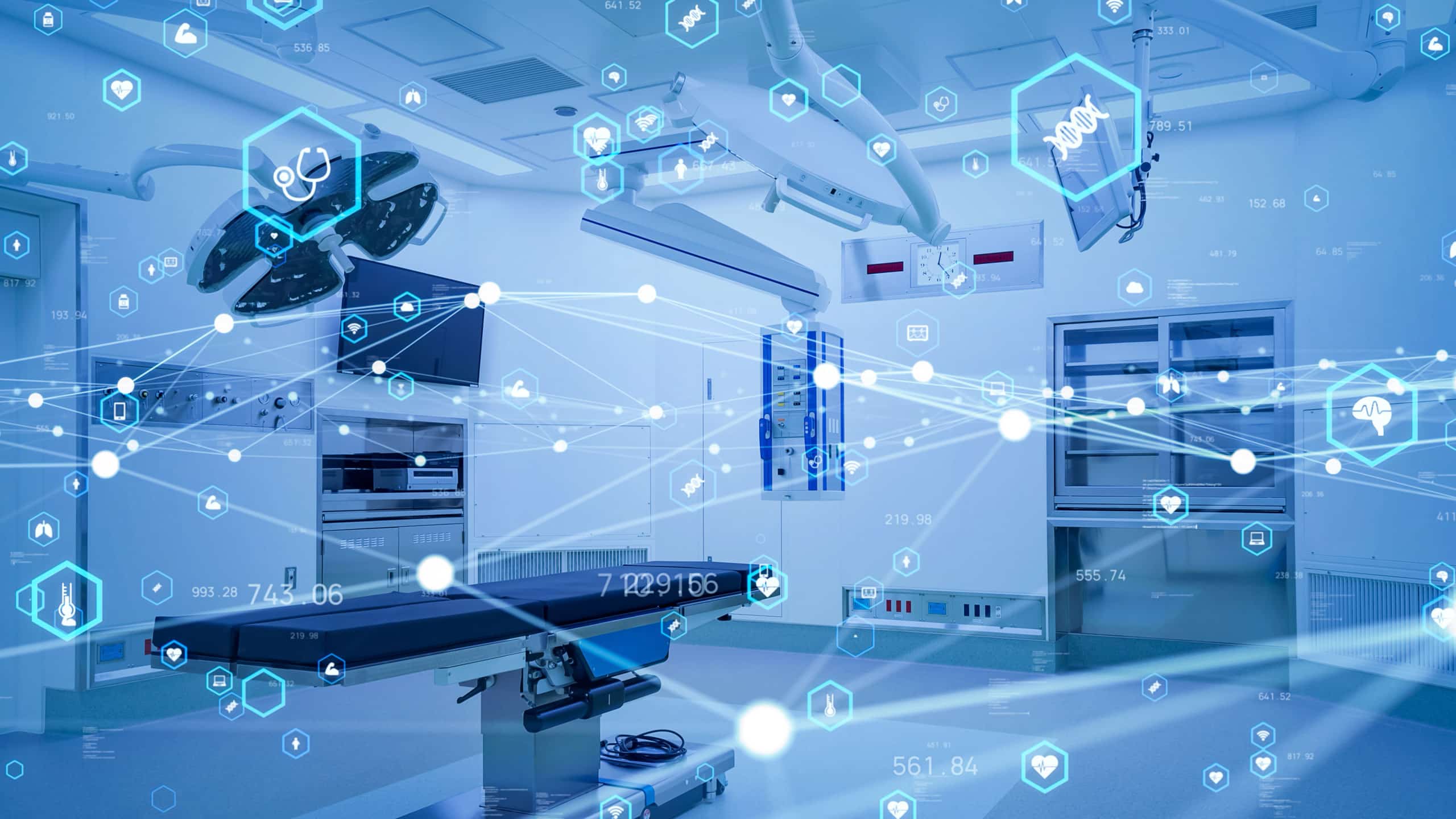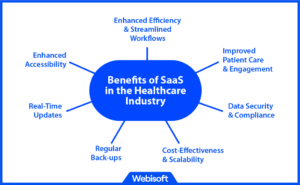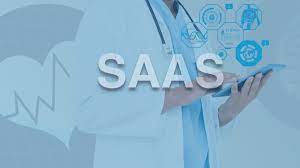
healthcare saas
In recent years, the healthcare industry has undergone a significant transformation with the advent of technology. One such innovation that has revolutionized healthcare delivery is Healthcare Software as a Service (SaaS). Let’s delve into what Healthcare SaaS entails and its importance in modern healthcare.
Definition of Healthcare SaaS
Healthcare SaaS, or Software as a Service, refers to the delivery of healthcare-related software applications over the Internet on a subscription basis. These cloud-based solutions offer a range of functionalities, from electronic health records (EHR) to practice management and telemedicine capabilities.
Importance in the healthcare industry
Healthcare SaaS plays a crucial role in streamlining operations, improving patient care, and driving efficiency in healthcare delivery. By providing cost-effective and scalable solutions, Healthcare SaaS empowers healthcare providers to deliver high-quality care while reducing administrative burden and costs.
Benefits of Healthcare SaaS
Healthcare SaaS offers several benefits that make it an attractive option for healthcare providers of all sizes.
Cost-effectiveness
One of the primary benefits of Healthcare SaaS is its cost-effectiveness. Instead of investing in expensive hardware and infrastructure, healthcare providers can access advanced software solutions on a subscription basis, significantly reducing upfront costs and ongoing maintenance expenses.
Scalability
Healthcare SaaS solutions are highly scalable, allowing healthcare providers to scale their operations up or down as needed without the hassle of purchasing and installing additional hardware or software licenses. This flexibility is particularly beneficial for growing practices or those with fluctuating patient volumes.
Accessibility and mobility
Healthcare SaaS solutions are accessible from any internet-enabled device, enabling healthcare providers to access patient data, schedule appointments, and communicate with colleagues from anywhere at any time. This mobility improves efficiency and enables better collaboration among healthcare teams.
Key Features of Healthcare SaaS

Healthcare SaaS solutions offer a range of features and functionalities designed to meet the unique needs of healthcare providers.
Electronic health records (EHR)
EHR systems allow healthcare providers to digitize patient health records, making them easily accessible, searchable, and shareable across healthcare settings. This improves care coordination, reduces errors, and enhances patient safety.
Practice management
Practice management software streamlines administrative tasks such as appointment scheduling, billing, and inventory management, allowing healthcare providers to focus more time and resources on patient care.
Telemedicine capabilities
Telemedicine platforms enable healthcare providers to deliver virtual care to patients remotely, improving access to healthcare services, particularly in underserved areas. Telemedicine also reduces the need for in-person visits, saving time and resources for both patients and providers.
Challenges and Considerations

While Healthcare SaaS offers numerous benefits, there are also challenges and considerations that healthcare providers must address.
Data security and privacy
Protecting patient data is paramount in healthcare, and healthcare providers must ensure that their SaaS solutions adhere to stringent data security and privacy regulations, such as HIPAA in the United States.
Regulatory compliance
Healthcare SaaS solutions must comply with various regulatory requirements and standards, which can vary depending on the jurisdiction and the type of healthcare services provided. Healthcare providers must ensure that their chosen SaaS solutions meet these compliance requirements.
Integration with existing systems
Integrating Healthcare SaaS solutions with existing healthcare systems and workflows can be challenging, particularly for large healthcare organizations with complex IT infrastructures. Healthcare providers must carefully assess compatibility and integration capabilities when selecting SaaS solutions.
Use Cases and Examples
Healthcare SaaS solutions are utilized across various areas of healthcare delivery.
Electronic medical record (EMR) systems
EMR systems digitize patient health records, enabling healthcare providers to access and manage patient information more efficiently. Examples of EMR systems include Epic, Cerner, and Allscripts.
Patient engagement platforms
Patient engagement platforms empower patients to take an active role in their healthcare by providing access to their health records, appointment scheduling, and communication with healthcare providers. Examples include MyChart and Patient Portal.
Revenue cycle management solutions
Revenue cycle management solutions streamline the billing and payment process, helping healthcare providers optimize revenue and improve financial performance. Examples include AthenaHealth and Kareo.
Comparison with Traditional Healthcare Systems
Healthcare SaaS offers several advantages over traditional on-premise healthcare systems.
Advantages of SaaS over on-premise solutions
- Lower upfront costs.
- Scalability and flexibility.
- Accessibility from anywhere.
- Automatic updates and maintenance.
Cost considerations
While Healthcare SaaS can offer significant cost savings over traditional on-premise solutions, healthcare providers must carefully consider subscription costs, implementation fees, and ongoing maintenance expenses when evaluating SaaS options.
Ease of implementation and updates
Healthcare SaaS solutions are typically easier and faster to implement than traditional on-premise systems, as they require minimal hardware installation and configuration. Additionally, SaaS solutions often include automatic updates and maintenance, reducing the burden on healthcare IT staff.
Future Trends in Healthcare SaaS

Looking ahead, several trends are shaping the future of Healthcare SaaS.
AI and machine learning integration
AI and machine learning technologies are being increasingly integrated into Healthcare SaaS solutions to improve clinical decision-making, personalize treatment plans, and automate administrative tasks.
Personalized medicine
Healthcare SaaS solutions are moving towards personalized medicine, leveraging patient data and genetic information to tailor treatment plans and interventions to individual patient’s needs and preferences.
Interoperability and data exchange
Interoperability and data exchange are becoming increasingly important in healthcare, and Healthcare SaaS solutions are working towards seamless integration with other healthcare systems and data sources to enable better care coordination and communication.
Conclusion
In conclusion, Healthcare-SaaS offers a range of benefits for healthcare providers, including cost-effectiveness, scalability, and accessibility. By embracing digital transformation and leveraging innovative SaaS solutions, healthcare providers can improve patient care, streamline operations, and drive efficiency in healthcare delivery.
FAQs
Is Healthcare SaaS suitable for all types of healthcare providers?
- Healthcare-SaaS can be beneficial for healthcare providers of all sizes, from small practices to large healthcare systems. However, healthcare providers must carefully evaluate their specific needs and requirements when selecting a SaaS solution.
How does Healthcare-SaaS ensure data security and privacy?
- Healthcare-SaaS solutions must adhere to stringent data security and privacy regulations, such as HIPAA in the United States. This includes encryption of data in transit and at rest, regular security audits, and strict access controls to protect patient data.
Can Healthcare-SaaS integrate with existing healthcare systems?
- Many Healthcare SaaS solutions offer integration capabilities with existing healthcare systems and workflows, allowing healthcare providers to seamlessly exchange data and information across different platforms. However, integration requirements may vary depending on the specific SaaS solution and existing systems.
What are the cost implications of adopting Healthcare-SaaS?
- While Healthcare-SaaS can offer significant cost savings over traditional on-premise solutions, healthcare providers must consider subscription costs, implementation fees, and ongoing maintenance expenses when evaluating SaaS options. Additionally, healthcare providers should assess the potential return on investment and long-term value of adopting SaaS solutions.
How does Healthcare-SaaS improve patient care and outcomes?
- Healthcare-SaaS solutions enable healthcare providers to access patient information more efficiently, streamline administrative tasks, and deliver virtual care to patients remotely. By improving access to healthcare services, enhancing care coordination, and leveraging data-driven insights, Healthcare-SaaS can ultimately improve patient care and outcomes.


